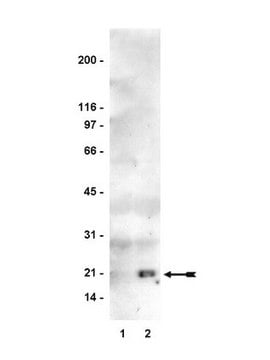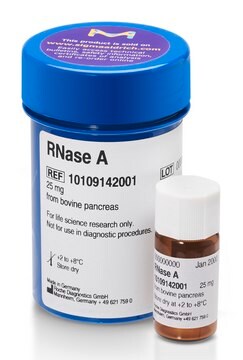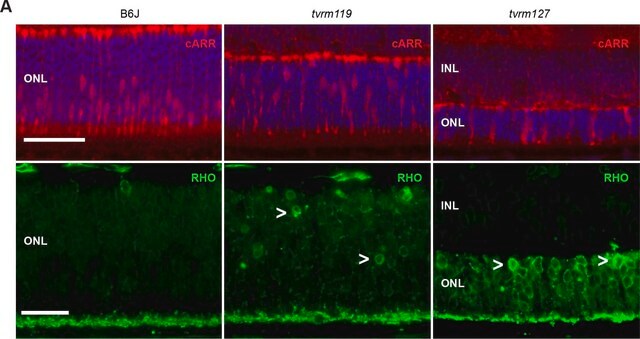17-218
Ras Activation Assay Kit
Synonym(s):
Ras Activity Assay
About This Item
Recommended Products
manufacturer/tradename
Upstate®
Quality Level
technique(s)
activity assay: suitable
NCBI accession no.
UniProt accession no.
shipped in
dry ice
Gene Information
human ... MRAS(22808)
General description
Packaging
Components
Anti-Ras, clone RAS10 (Cat.# 05-516)
100X GTPγS, 10mM (Cat.# 20-176)
100X GDP, 100mM (Cat.# 20-177)
Mg2+ Lysis/Wash Buffer, 5X (Cat.# 20-168)
Quality
Linkage
Legal Information
Disclaimer
Signal Word
Danger
Hazard Statements
Precautionary Statements
Hazard Classifications
Aquatic Acute 1 - Aquatic Chronic 2 - Eye Dam. 1
Storage Class Code
10 - Combustible liquids
Regulatory Listings
Regulatory Listings are mainly provided for chemical products. Only limited information can be provided here for non-chemical products. No entry means none of the components are listed. It is the user’s obligation to ensure the safe and legal use of the product.
JAN Code
17-218:
Certificates of Analysis (COA)
Search for Certificates of Analysis (COA) by entering the products Lot/Batch Number. Lot and Batch Numbers can be found on a product’s label following the words ‘Lot’ or ‘Batch’.
Already Own This Product?
Find documentation for the products that you have recently purchased in the Document Library.
Articles
Today, diverse studies report the benefits of probiotics, such as inhibitory effects on pathogens, aid in the management or prevention of chronic intestinal inflammatory diseases or atopic syndromes, and support to the immune system. Potential beneficial applications abound, researchers continue to evaluate the effictiveness and clarify the mechanisms of action of probiotics.
Our team of scientists has experience in all areas of research including Life Science, Material Science, Chemical Synthesis, Chromatography, Analytical and many others.
Contact Technical Service










